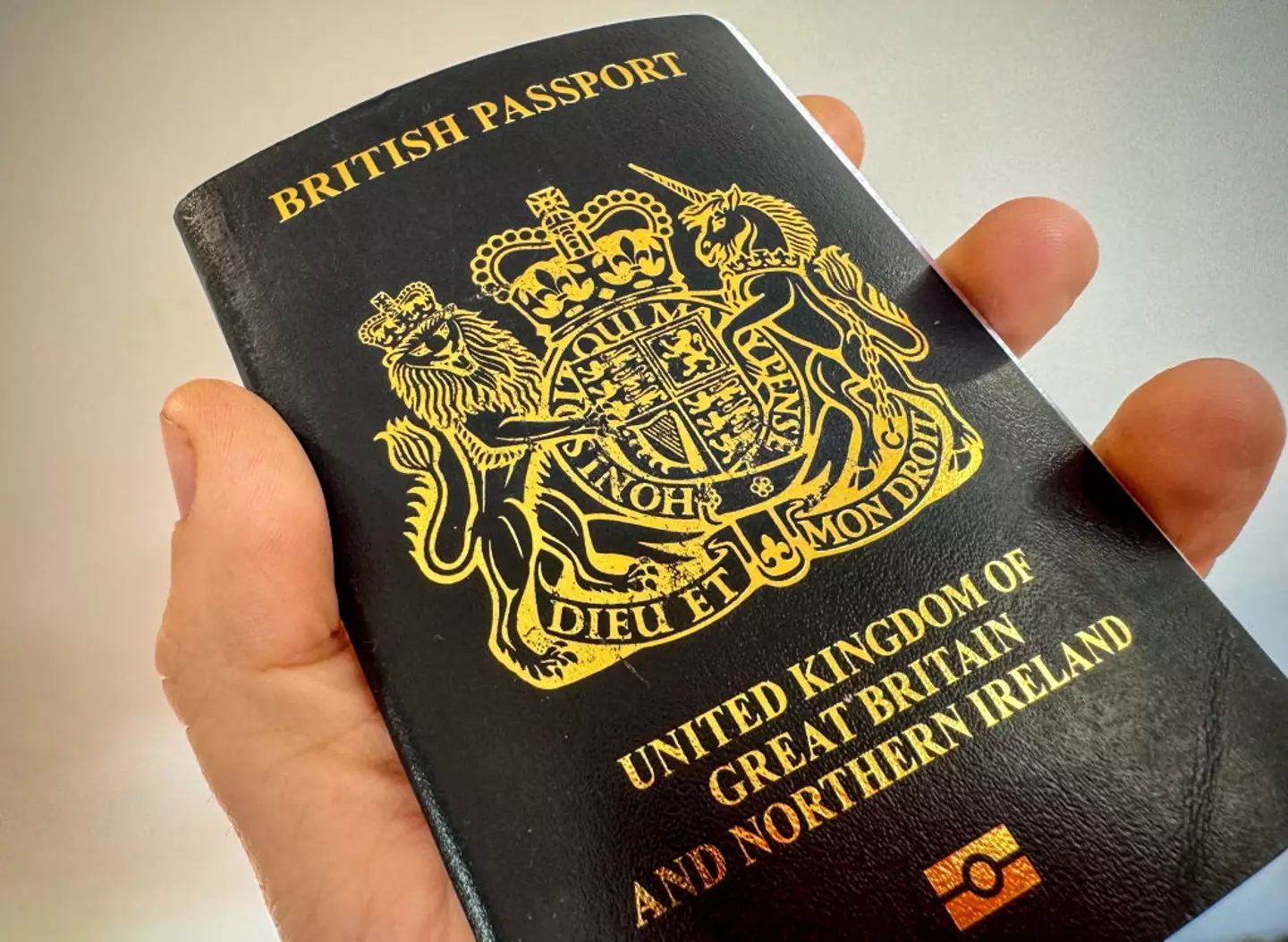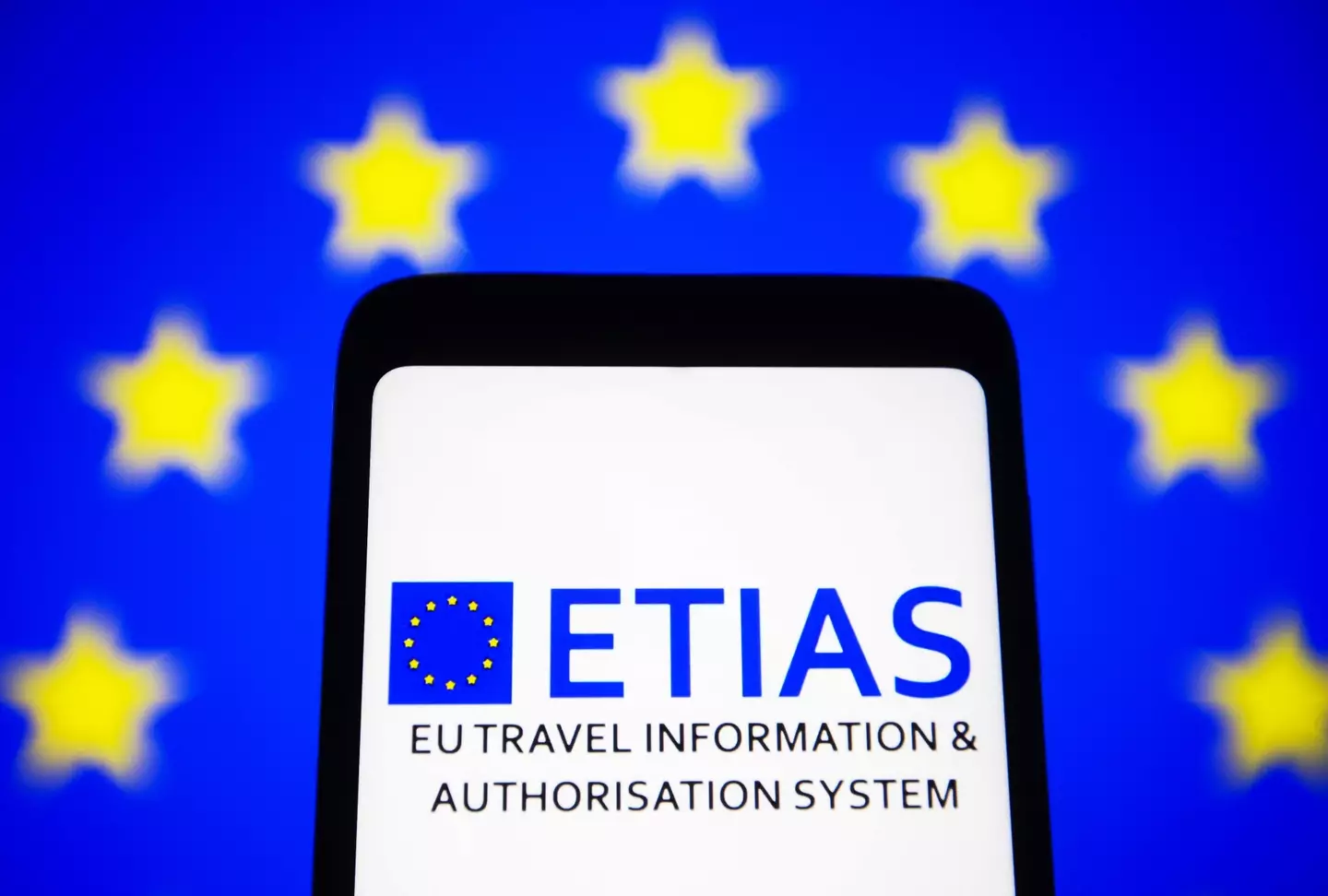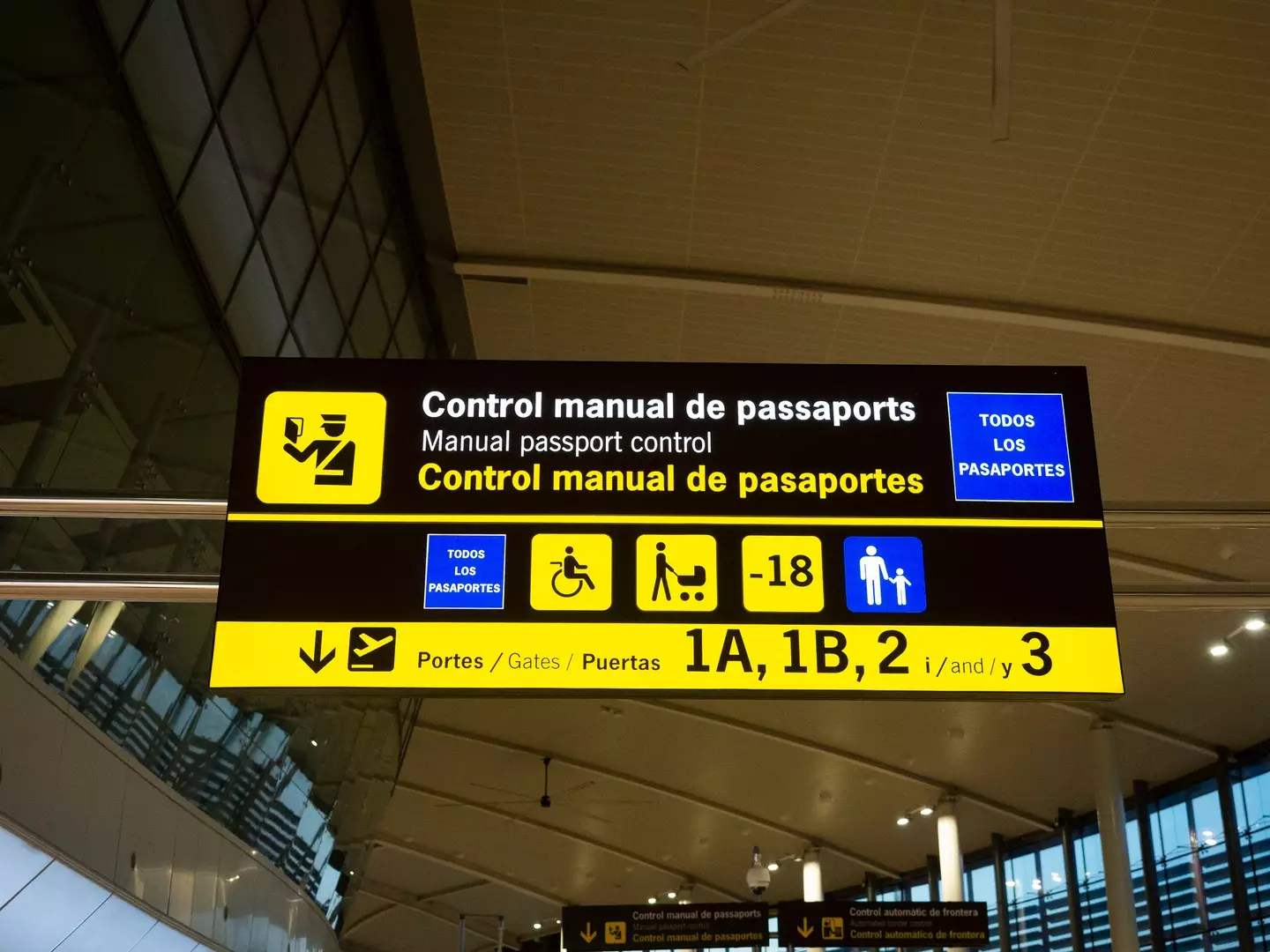
New travel rules coming in to force in 2025 mean Brits could be on the end of a European banning order if they don’t comply.
Since Brexit became a thing, the United Kingdom has slowly been phased in to ‘third country’ status by the European Union.
It means that while Brits now enjoy autonomy on certain things (yay, blue passport…) a level of freedom has been lost; primarily access to freedom of movement across any EU country.
That right to freedom of movement is enshrined in the Schengen Area, where almost 30 countries agree to open borders if you are a citizen of any of the nations involved. The UK does not enjoy this freedom any more. And with new EU rules coming in to play this year, not following them could see Brits banned from every country signed up to the Schengen Area.

At least the passports are blue, right? (Matt Cardy/Getty Images)
New European travel rules explained
2025 will see the introduce of the European Travel Information and Authorisation System visa waiver; something you may have seen labelled as ETIAS.
A new thing to add to your holiday list to any of the 29 countries in the Schengen Area, it’ll cost you €7 per person, which is around £6 to Brits.
And for those unaware, the Schengen Area is the follow countries in Europe – Austria, Belgium, Bulgaria, Czechia, Croatia, Cyprus, Denmark, Estonia, Finland, France, Germany, Greece, Hungary, Iceland, Italy, Latvia, Lithuania, Liechtenstein, Luxembourg, Malta, Norway, the Netherlands, Poland, Portugal, Romania, Slovakia, Slovenia, Spain, Sweden and Switzerland.
What the ETIAS visa waiver does is allow Brits, post Brexit, to stay in the European Union for up to 90 days within any 180-day period; something more commonly known as the 90/180 day rule.

Flying to Europe just got a little bit more taxing (Getty Stock Images)
Travelling without an ETIAS waiver
If you don’t secure your ETIAS waiver before travelling to the above 29 countries, you will be refused entry after the system goes live on 1 May, 2025.
Once you secure your ETIAS waiver, it will be valid for three years or until your passport expires.
Whichever of these comes first – the end of the three year cycle of a new passport – will see you need a new ETIAS waiver to travel back to the Schengen Area.
Don’t get too stressed, though, as there is a six month transition period where travellers will be notified of the need for the visa without having to actually have one.

ETIAS goes live this year (Pavlo Gonchar/SOPA Images/LightRocket via Getty Images)
Thinking about breaking the rules?
Breaking the rules will land you in trouble though. If you overstay your 90 day welcome and don’t have the correct visa in place to legally guarantee you to stay there for longer than this, you could be in serious bother.
First of all, we’re talking removal from the Schengen Area back to your country of origin. You may also be fined, detained, and even banned from re-entry for a period of time.
This can be up to three years, according to the EU’s website.

Passport control in Spain (Getty Stock Images)
UK passport holders don’t need an ETIAS visa waiver for everywhere in Europe
Brits will be able to head to Albania, Andorra, Belarus and Bosnia and Herzegovina without the ETIAS waiver completed.
On top of this you can also head to Ireland. That is because it is part of the Common Travel Area within the United Kingdom.
Other European countries you can visit without the waiver are North Macedonia, Moldova, Monaco, Montenegro, Russia, San Marino, Serbia and Ukraine.